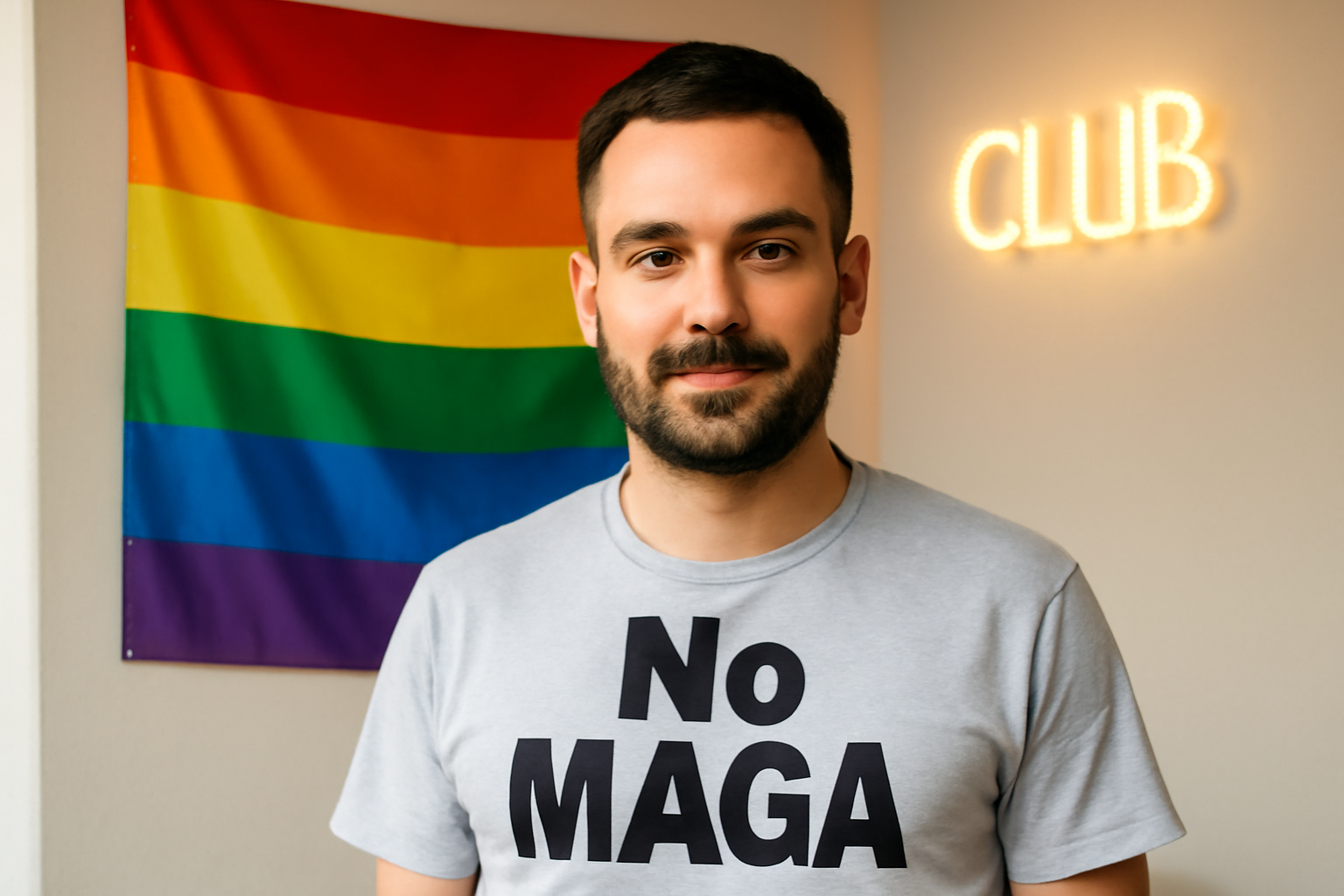
An Inclusive Space for All
In a move to maintain a welcoming environment for all its patrons, a popular LGBTQ+ club in Sacramento, California, has decided to ban attire associated with the "Make America Great Again" (MAGA) campaign. This decision follows a viral incident at another nightclub where a similar situation led to a contentious debate about political expression in queer spaces.
The club, known as Badlands, is renowned for being a safe haven for the LGBTQ+ community. The decision to specifically prohibit MAGA-related attire came after an initial consideration to ban all political clothing altogether. However, the owner, TJ Bruce, took to Instagram to clarify the revised policy. "Initially, we thought a blanket ban on political attire would be the simplest solution," Bruce explained. "But after much thought, we realized that this wasn't the right approach. Our goal is not to suppress any political beliefs but to ensure that Badlands continues to be a space where everyone feels comfortable and supported."
Community Reactions
The reaction to the policy has been mixed but largely supportive within the LGBTQ+ community. One comment that gained traction on social media likened wearing MAGA gear in a queer bar to "wearing a fur coat to a PETA meeting," highlighting the potential for conflict that such attire might bring into a space meant for inclusivity and acceptance.
Steven Bourasa, a customer who wore a MAGA hat to Badlands, reported having a "pleasant time" at the club, despite the new policy. He has expressed his intent to continue visiting Badlands, albeit without the controversial headwear.
However, not everyone agrees with the club's decision. The Log Cabin Republicans, a group representing conservative LGBTQ+ individuals, criticized the move as divisive, arguing that it prioritizes separation over the principle of free speech. "This action sends a message that some voices are not welcomed in spaces where they should be free to express their identity," they commented.
Incidents Prompting Change
The decision by Badlands echoes a larger conversation happening across the country. Recently, another incident in Indianapolis made headlines when a Trump supporter claimed she experienced discrimination after being ejected from an LGBTQ+ club. Witnesses and club representatives later alleged that her removal was due to her "intentionally misgendering and harassing" staff and patrons, as well as "verbally assaulting" others present at the venue.
These incidents underscore the sensitive nature of political expression in spaces dedicated to marginalized communities. LGBTQ+ venues often serve as sanctuaries for individuals who face discrimination in other areas of their lives. Thus, maintaining an atmosphere free from potential conflict is a priority for many of these establishments.
Political Climate and Its Impact
Since the return of former President Trump to the political spotlight, his administration has enacted several controversial policies that have directly impacted the LGBTQ+ community. These policies include executive orders defining gender strictly as male or female, attempts to ban transgender individuals from military service, and efforts to restrict access to gender-affirming healthcare for transgender youth.
These political moves have increased tensions and brought about a landscape where symbols and clothing associated with the former president are perceived as hostile by many within the LGBTQ+ community. In this context, the decision by Badlands and similar venues to limit such symbols is seen as a protective measure to uphold the integrity and safety of their space.
Engaging in Respectful Dialogue
As this debate continues, clubs like Badlands encourage open dialogue among their patrons and the community at large. They invite everyone to share their thoughts on the matter while emphasizing the importance of maintaining respect and empathy in these discussions. "We value all feedback," said a spokesperson for Badlands. "Our goal is to foster a community where everyone feels heard and respected, regardless of differing opinions."
As society navigates these complex issues of identity, expression, and inclusivity, spaces like Badlands remain at the forefront, adapting and evolving to meet the needs of their community while striving to balance freedom of expression with the safety and comfort of their patrons.
Related Posts
Triumphant Trans Woman Wins Legal Battle and Inspires Others to Stand Up for Their Rights
Breaking new ground: a landmark victory in transgender rights After battling in courtrooms and enduring endless challenges, Diana Portillo, a transgender woman, has secured a monumental victory in her decade-long fight against workplace discrimination. The result? Nearly $1 million awarded in a historic settlement. But this isn't just a win on paper—it represents a powerful precedent in combati [...]
Pride Month in Latin America: Protests and Demands for Equality
**Celebrating Pride and advocating LGBTQ+ rights in Latin America** Pride Month in Latin America was a lively mix where celebration met activism. Communities united, not just throwing a party but making a stand—demanding equality and pushing governments toward better protection and rights recognition. Throughout Latin America, pride events erupted in marches and cultural displays, each with a c [...]
Transgender Erasure Actions Implemented by National Park Service
```html Trump administration's impact on national park service and transgender recognition The Trump administration made notable moves in undermining transgender representation, which included directing agencies like National Park Service not include "T" and "Q" when they refered “LGBTQ” in any official communication. This move seems part a broader plan by this administration aimed at reducin [...]